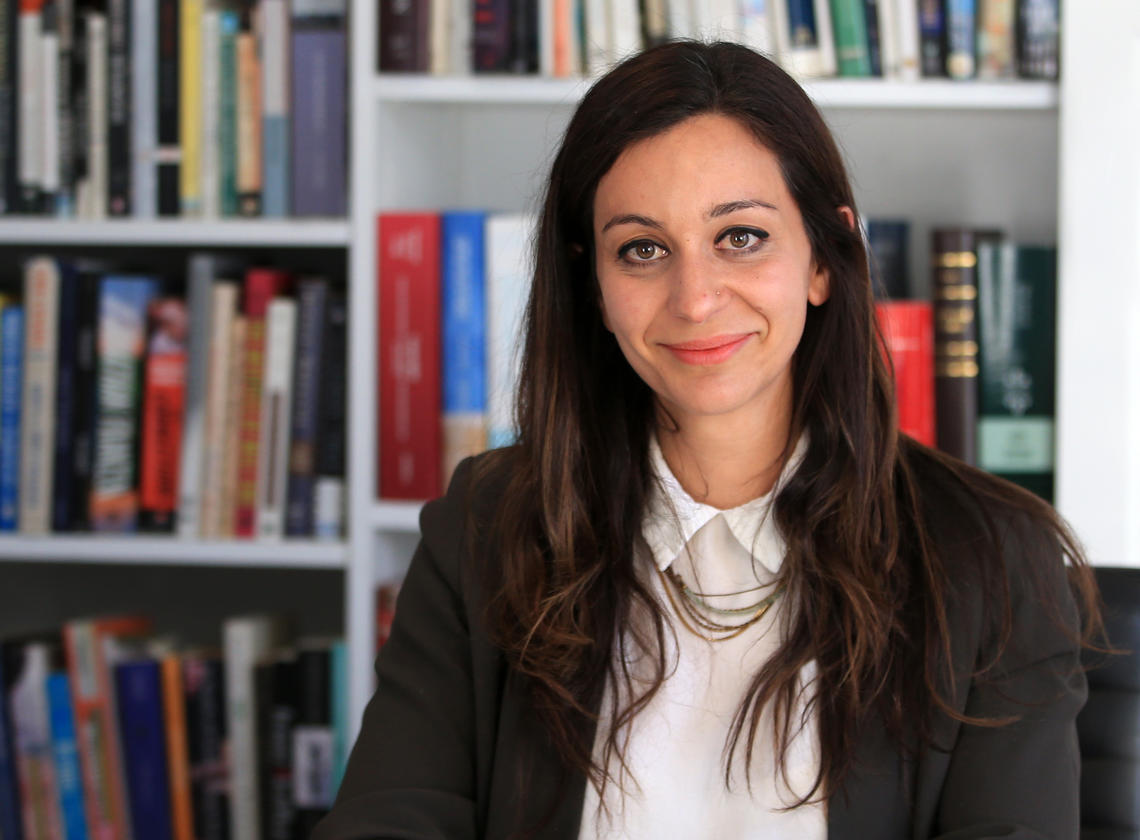June 11, 2021
Class of 2021: Short film advocates for workers following tragic impact of COVID-19 in long-term care

A Filipina woman with dark hair sits with her back to the camera, looking over the Elbow River. “When we had an outbreak, I don’t think we were really prepared,” she says. “It was really controlled [the use of personal protective equipment] and we were reusing some stuff, which I didn’t agree to, but we didn’t have a choice. A lot of our staff were scared, so we were short staffed.”
This moment from the short documentary film Caring during the COVID-19 Crisis: Immigrant Women Working in Long-Term Care in Calgary, produced by Dr. Naomi Lightman, PhD, and Ellie Stewart, BA’21, paints a stark picture of the struggles faced by health-care aides (HCAs) working in long-term care during COVID-19. The film is one way that Lightman, assistant professor in the Faculty of Arts, is sharing her research on this topic, conducted in partnership with the Calgary Immigrant Women’s Association.

Ellie Stewart.

Naomi Lightman.
“There is a focus on knowledge translation within the social sciences, and I was brainstorming what I could do that would be more visual than the academic papers and reports I am writing about this research,” says Lightman. “I thought, ‘I’ll make a movie!’, but I had no experience with this medium.”
Enter burgeoning filmmaker Stewart, who was introduced to Lightman by one of her professors. “My filmmaking experience has largely been in narrative and genre films. I’m currently a producer at NUTV, the campus TV station,” Stewart says. “I was excited about this because I got to try my hand at documentary style.”
The film features interviews with Lightman, Marie-Solange Eveh B. of the Calgary Immigrant Women’s Association, and two anonymous immigrant women HCAs. The HCAs share details of their experience working in long-term care over the past year — reusing personal protective equipment, long hours, inadequate treatment of patients, and more.
“It was difficult to find participants who would agree to be filmed, even though we did not have their face to the camera,” says Lightman. “It gave me an even greater understanding of how fearful they are of losing or threatening their job in any way. I so appreciate the women who agreed to be filmed, they’re really passionate women who believed in the project and wanted to have a voice.”
Stewart brought her filmmaking expertise to the project, and collaborated with Lightman on how to best communicate the research for a non-academic audience. “I hope I was helpful in bringing an outside perspective,” she says. “I worked hard to include the really important things that really impacted me when I first heard them.”
Stewart uses animated graphs and text to illustrate the data and key points of Lightman’s research. The interviews were filmed near Calgary landmarks, emphasizing how these issues are local ones that audiences can influence as engaged citizens.
“I’m hoping that the things we talk about in the film — better wages, better staff-to-resident ratios, a prioritization of public funding in long-term care, and giving a voice to HCAs — will resonate with the audience,” says Lightman. “It’s about garnering the political will to make the necessary changes.
We’ve had enough reviews of long-term care, we know what the problems are. The question is, are we going to do something about it?
Lightman will publish a policy report with the Parkland Institute at the end of June that builds on 25 interviews done with immigrant women HCAs about their experiences during COVID-19.
The film is a fitting conclusion to Stewart’s Bachelor of Arts in Communications degree. “My experience in undergrad has been a mix of academic work in classes and hands-on experience elsewhere, so I think it was appropriate to end my degree mixing those two worlds together,” she says. At the end of summer, Stewart is headed to Toronto to pursue a career in television and film.
“Working with Ellie was a delight,” says Lightman. “I love working with students on a one-to-one basis, and it was great to get to know Ellie and work together on this project as partners.”
This project was funded by the University of Calgary’s Faculty of Arts and a Social Sciences and Humanities Research Council of Canada Partnership Engage grant.
Since 2014 the Peak Scholars program has celebrated the accomplishments of over 200 scholars at the University of Calgary. These are scholars whose academic work in knowledge engagement, entrepreneurship, tech transfer, innovation or collaborative research has resulted in a positive social or economic impact in our communities. Learn more







